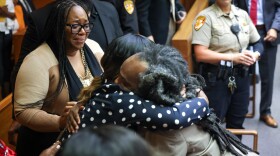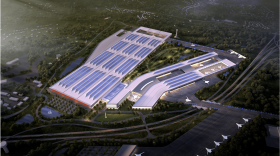President Joe Biden recently raised the number of refugees allowed to resettle in the United States. It was a decision that could have a profound effect on those who are seeking a home in the U.S., and on families who are already here.
Earlier this year, I spoke with Prince Mushunju, the pastor of El-Shaddai Church in Greensboro. He told me the story of how he fled his home country of Congo, lived in Uganda for over a decade and then finally resettled in the U.S. with his wife and newborn.
Today, they have three children and are hoping to bring Prince’s parents over from Uganda – a situation that may be helped by the Biden Administration raising the refugee cap.
We checked back in to ask Prince and his family about that policy change, and what impact it may have on his family and on other refugees seeking to come to this country.
Our conversation is edited for length and clarity.
Where are you in the process to bring your family to the U.S.?
PM: "So, we are still waiting. We are finished with DNA testing. They need to prove that he is my father, and that she is my mother. If they find that they are my real parents, then they will be eligible to restart the process again, then they would have to pass another two interviews before they are allowed to come here."
Did the election of Joe Biden make you feel more optimistic about your situation, and the broader refugee situation, moving forward?
PM: "Now, there is hope. Because there are a number of refugees are coming. I've seen some of my former members in the church, who have arrived in America and have called me to say 'we are here, we have arrived.' So there is a hope. We believe maybe through the Biden Administration we may get a chance to get my parents to come here."
What what would you say to President Biden, or to his administration, about the refugee policy and refugees in America?
PM: "I would say that refugees are not terrorists. No refugee wanted to come here. There is a process we go through before we come here. And the majority of refugees are doing the work that no Americans want to do. We have families that are working, like, 16 hours a day in chicken factories. These families are contributing to the economy of this country, as refugees.
"It is difficult to have peace in this world right now, so it is unfair (for a country like the U.S.) not to welcome refugees. But we have hope now, which is better than the previous administration.
"What does it mean for a person, like me, to come from a refugee camp to America? It's like a miracle. And everyone deserves that miracle."







